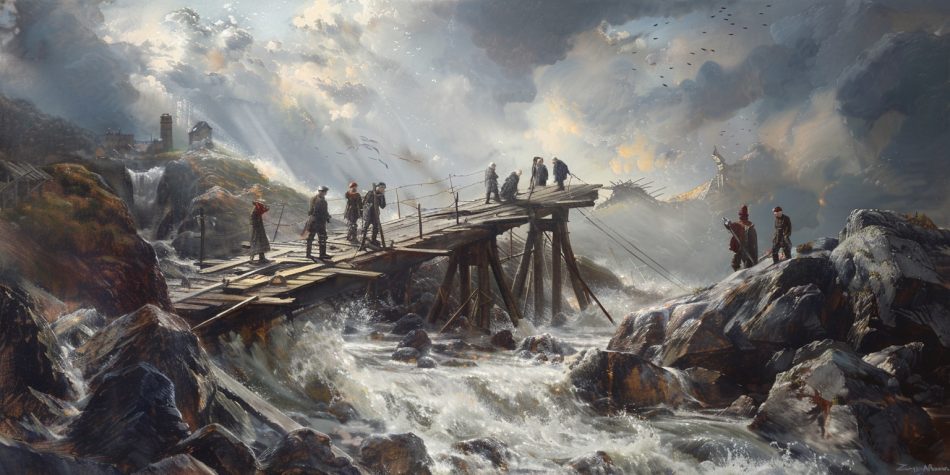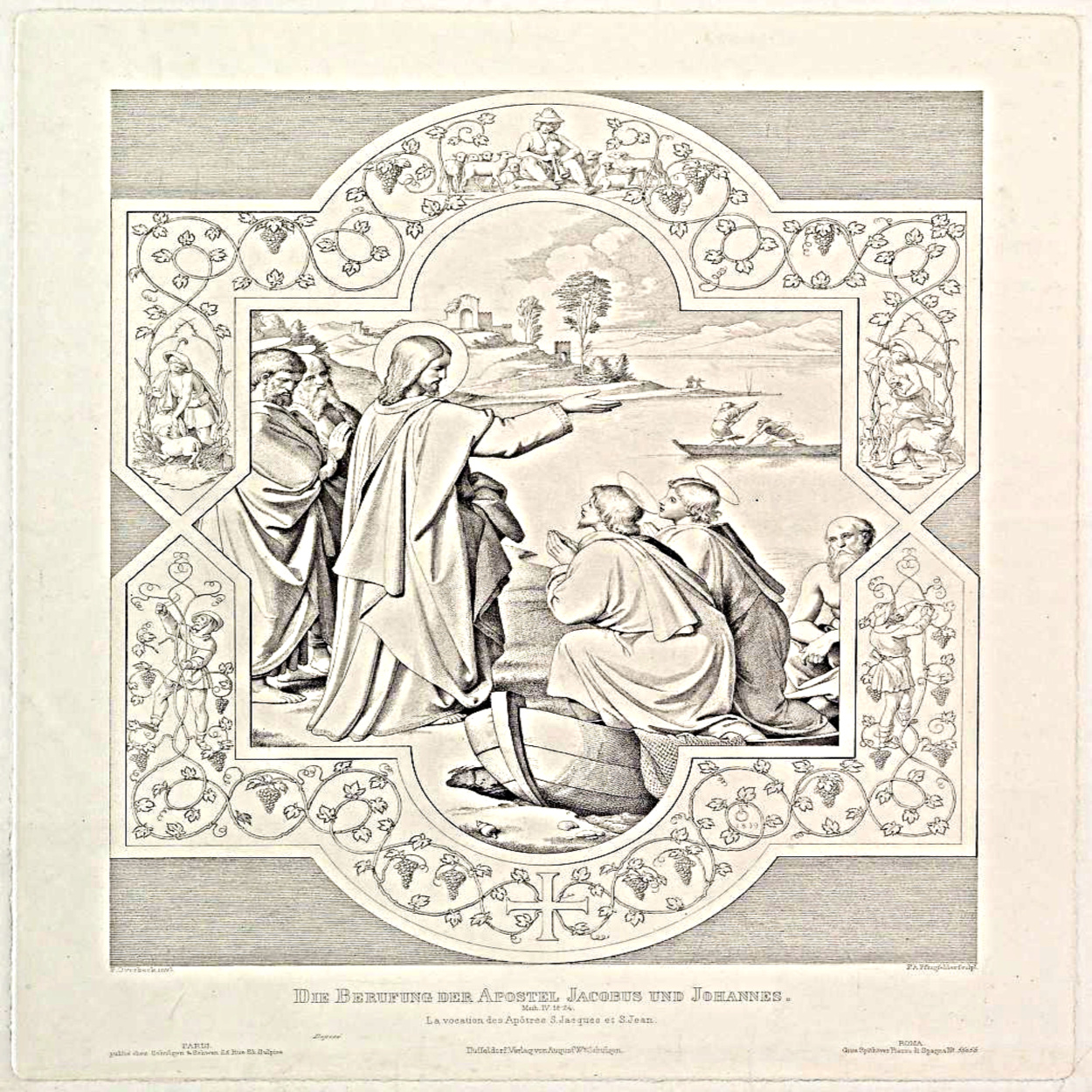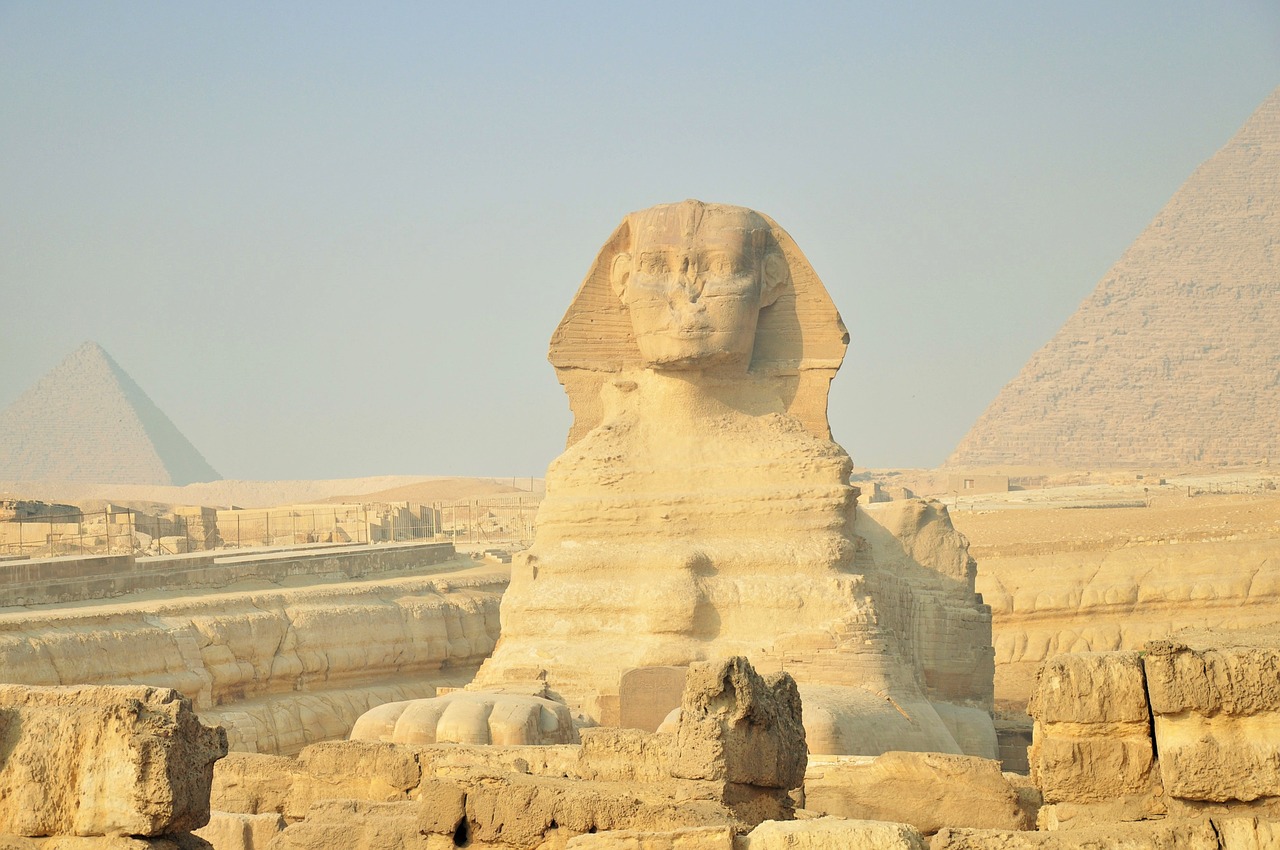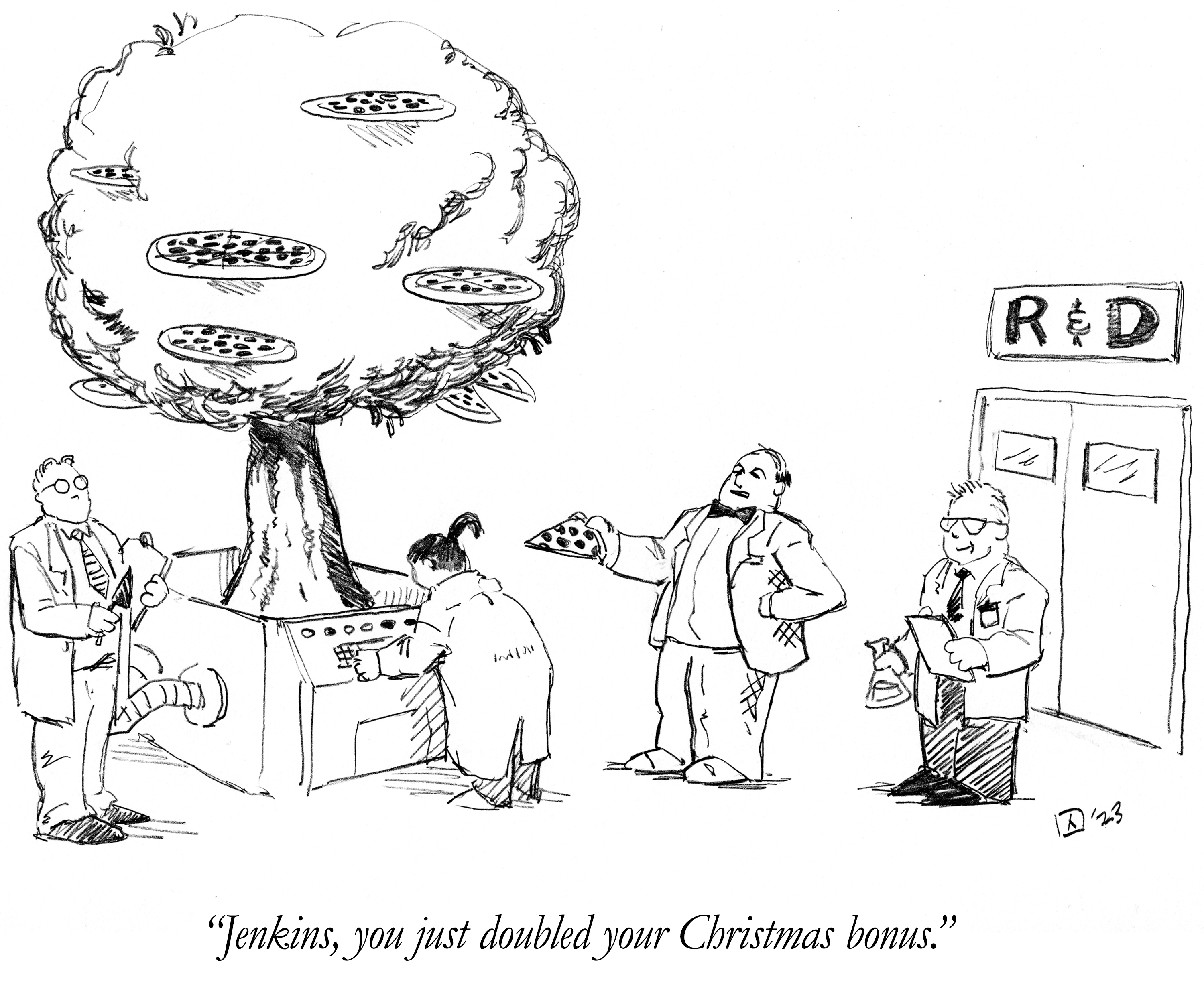In some ways, the Saints have been diverted from their main purposes by playing into conflicts crafted by unbelieving and uninspired societal influencers who benefit from contention. Rather than determine our own way forward in building and beautifying Zion, we are caught in a web of political strife, excessive individualism, draining materialism, and intense isolation and loneliness. We are allowing the world to dictate our priorities and primary frameworks for our lives. We must choose to engage differently with the world and its priorities to concentrate on the Lord’s vision. Our personal and collective peace and happiness are dependent upon rejecting false frameworks to fully live our covenants.
According to macro-level systems theory, even in a conflict, cooperation is needed among system members to keep conflicts going. This means that if any one person in a conflict decides to change their engagement, they can change the nature of the conflict. Rather than abdicate our control of our lives, some authors suggest that if you are stuck in a system that perpetuates conflicts you would like to exit, you always have the choice to change your own behavior even if you cannot get others to change. To change conflict patterns in our lives and find peace, we may need to reject certain conflict frameworks we are offered from uninspired sources. We must choose to engage differently with the world.
What are sources and types of faulty conflict frames that distract us?
Until we bring our faulty conflict frameworks into the light, the Lord’s promised happiness and peace will elude us because we are not built on a firm foundation. There is no achievable balance when we are double-minded, trying to live our covenants to a certain extent while simultaneously basing our identities on faulty worldly assumptions. We are especially susceptible to internal conflict if we do not prioritize our three main eternal identities of ‘child of God,’ ‘child of the covenant,’ and ‘disciple of Jesus Christ.’” President Nelson explained that:
Any identifier not compatible with those three basic designations will ultimately disappoint and let a person down, because it does not have the power to lead to eternal life and the celestial kingdom. Worldly identifiers will never affirm divine DNA and divine potential.
What major conflicts in your life are perpetuated because your identity is framed around the continuance of a conflict or a contrast with another person? For example, if you are divorced, is your confidence that you are a good parent based on the belief that your former spouse is a bad parent? Is your central identity based on a comparison rather than the solid foundation of your own worth? Do you consider yourself quite progressive and enlightened, but only in relation to your conservative family members? We often tend to create our identities based on simple generalized contrasts with others that minimize everyone’s eternal identities as children of God. We should consider what happens to our sense of self when an important conflict is resolved and we no longer have an opposing force to define ourselves against. Ultimately, our core identities should stem from our foundational roles as children of God.
How can we modify our conflict frameworks?
To begin to make constructive changes in how we identify with and approach our conflicts, we need to first recognize the frameworks that support and perpetuate conflict in our lives. Conflict theorists Hocker and Wilmot offer a key reminder that “Repetitive, unsatisfactory conflicts often operate from a set of unstated but very powerful rules that limit genuine change.” To change how we experience conflict, we must first make the rules of conflict engagement in a particular situation explicit. If we have trouble identifying the specific rules that are directing a conflict, we might consider how we think and feel when a rule is broken. How can we tell that someone has gone too far? Once we have identified the rules that undergird a conflict, we ask ourselves how true principles could play into the resolution of the conflict. Only by first identifying the frameworks of our conflicts can we then discern the necessary changes required to receive the peace promised by God. Frequently, we accept the conflict frames people in power offer to us.
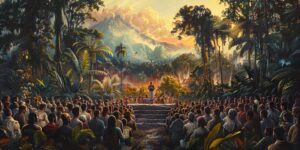
What are helpful conflict frames?
As the Book of Mormon prophet Jacob explains, the real battle on this earth is with death and hell, which necessitate seeking God’s grace. We are surrounded by uninspired influences that might depress and discourage us from even trying to live a celestial type of life, diverting us with additional, less important conflict frames. Despite the temptation to see through a glass darkly, in all ages of the world, prophets have encouraged individuals and entire nations to rise above telestial lifestyles to envision the type of life that God lives. President Gordon B. Hinckley encouraged us to examine the preventive role extreme self-focus plays in our efforts to build Zion:
If we are to build that Zion of which the prophets have spoken and of which the Lord has given mighty promise, we must set aside our consuming selfishness. We must rise above our love for comfort and ease, and in the very process of effort and struggle, even in our extremity, we shall become better acquainted with our God.
In God’s version of the abundant life, all people serve each other with love and generosity. As the spirit of Zion changes our natures, we not only bury our weapons of war but refashion them into tools to cultivate and sustain life. This type of abundant life is immediately made available to those who will choose to be redeemed through the grace and merits of Jesus Christ. We find peace despite war and sanctification despite being surrounded by corrupt influences.
If our eternal conflict is with death and hell, we must wisely seek the peace and love that soothed Enoch when he initially refused to be comforted by God. Despite his pained initial reaction, once Enoch witnessed the first coming of Jesus Christ in the meridian of time, he rejoiced in the power of the Atonement and exclaimed: “Through faith, I am in the bosom of the Father, and behold Zion is with me.” Long before Enoch founded the city of Zion, he experienced the spirit of Zion within, and a sweet, tender relationship with our Father in Heaven. Similarly, Joseph Smith promised peace to those who will reframe their lives according to the principles of Zion:
If you will put away from your midst all evil speaking, backbiting, and ungenerous thoughts and feelings; humble yourselves, and cultivate every principle of virtue and love, then will the blessings of Jehovah rest upon you, and you will yet see good and glorious days; peace will be within your gates, and prosperity in your borders.
Despite the many challenges and personal setbacks Joseph Smith experienced during his life, he knew and lived the principles of eternal life that naturally produce peace and love. He tirelessly combatted worldly opposition with a sincere effort to bring a bit of Zion to any situation he encountered.
Zion and its stakes are to be built and beautified prior to the Lord’s coming
In our day, despite the darkness and cynicism currently looming on the main stages of modern life, the great secret is that Zion is and must continue to be built well before the Savior comes again. Ancient and modern prophets have clarified that the Saints are called to create Zion-like societies in communities across the world based on celestial law. We should not expect that God will suddenly change our natures, society, and way of doing things among us. Rhetorically, Brigham Young asked the Saints:
Who will do this great work? Is the Lord going to convince the people that he will redeem the center Stake of Zion, beautify it, and then place them there without an exertion on their part? No. He will not come here to build a Temple, a Tabernacle, a Bowery … for we already know how to do these things. We have to build up Zion, if we do our duty.
Rather than ask the Lord to do work we can do ourselves, we take the initiative to cultivate Zion-like communities that address social, political, and other functions of human cooperation that are compatible with the Savior’s society. Certainly, we’ll face challenges, resistance, and the necessity for compromise as we try to improve our current life circumstances. Yet, we should not allow imperfect methods and solutions to discourage us from striving to enhance our lives. President George Q. Cannon taught:
As a people, we are expecting the day to come when Jesus will descend in the clouds of Heaven; but before this day comes, we must be prepared to receive him. The organization of society that exists in the heavens must exist on the earth; the same condition of society, so far as it is applicable to mortal beings, must exist here.
In the early days of the restoration, converts flocked to the United States to build the literal city of Zion. However, as years turned into decades and now centuries of waiting to build Zion in time and space, church members have focused primarily on the conceptual idea of Zion being “the pure in heart.” Maybe we are comfortable keeping the idea of Zion confined to an abstract concept because, in reality, we often tend to conform to worldly norms in how we raise and educate children, in our efforts to pursue wealth and indulge in forms of self-promotion that even ancient kings could not have fathomed. Despite our lonely angst, we find Babylon’s comforts and luxuries hard to resist. We may wonder if Zion is just an ideal to discuss during deep theological conversations but something we will never really experience during our lifetimes. Zion is not an abstract concept but also a tangible place we are called to create.
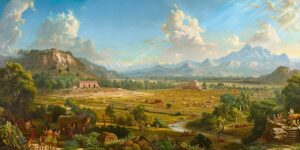
What are the key attributes of Zion?
As Nephi recounts in 4 Nephi, Zion is comprised entirely of individuals who choose to live by the celestial law. Zion is characterized by a lack of contentions and disputations, having all things in common materially and otherwise, experiencing mighty miracles wrought in the name of Jesus, the love of God in every individual’s heart, frequent prayer, fasting, and meeting together, and no manner of class distinctions.. Further, Nephi mentions a lack of myriad interpersonal strife such as “no envyings, nor strifes, nor tumults, nor whoredoms, nor lyings” and so on. Transforming these negatives into a positive admonition, the Lord counseled early church members to “let every man [or woman] esteem his [or her] brother as himself. Ultimately, in Zion we treat others according to the golden rule because each person has equal value before the Lord and within society. Build Zion one righteous act at a time.
Further, Hugh Nibley explains that “The law of consecration is expressly designed for the establishment of Zion, where “they were of one heart … For that, we must consecrate means to set apart, sanctify, and relinquish our own personal interest in the manner designated in the Doctrine and Covenants. It is the final, decisive law and covenant by which we formally accept the Atonement and merit a share in it.
As the only people who are not at war with each other, Zion is a refuge from both figurative and literal destruction for all who are willing to abide by the principles of celestial living. Members of Zion communities do not negotiate their identities with the world but look to God for guidance and instruction. They seek revelation but also prize the instructions that have already been received for the strengthening of existing structures and building of the new.
How do we build Zion?
First, to build Zion, we must have a clear vision or blueprint as suggested by the spiritual creation prior to the physical as explained in the Pearl of Great Price. As mentioned in Proverbs, “Where there is no vision, the people perish: but he that keepeth the law, happy is he.” As with a building remodel, we plan new construction in relation to the old. We may need to tear down an old wall or reinforce unstable foundations before we take further steps, but we recognize the existing structure while keeping the newly created vision in mind. Stop playing into societal divisions that ruin our peace.
Other attempts to promote universal peace and happiness in the human family have proved abortive; every effort has failed; every plan and design has fallen to the ground; it needs the wisdom of God, the intelligence of God, and the power of God to accomplish this. The world has had a fair trial for six thousand years; the Lord will try the seventh thousand Himself.
Given myriad efforts to build peaceful societies throughout history, building Zion will require faith and related grit to weather criticism, skepticism, and all kinds of opposition. Yet, even despite our own skepticism, doubts, and misgivings, Brigham Young reiterated the ever-present opportunity for Saints to build Zion when he said:
There is not one thing wanting in all the works of God’s hands to make a Zion upon the earth when the people conclude to make it. We can make a Zion of God on earth at our pleasure, upon the same principle that we can raise a field of wheat or build and inhabit. There has been no time when the material has not been here from which to produce corn, wheat, etc., and by the judicious management and arrangement of this ever-existing material, a Zion of God can always be built on the earth.
While the Lord has provided well-laid-out administrative plans and laws governing our individual and collective behaviors required to build Zion, we each have unique offerings to make to the cause. As children of the most creative beings in the universe, the Lord expects us to contribute our own talents, creativity, and passion willingly to building and beautifying Zion. Brigham Young confirmed our need to begin real exertion for the cause instead of just daydreaming about a future Zion. He said, “If we are to build up the Kingdom of God, or establish Zion upon the earth, we have to labor with our hands, plan with our minds, and devise ways and means to accomplish that object.” We expect that the Lord will inspire us in our minds and hearts by the power of the Holy Ghost to make our specific contributions to building up Zion. A therapist might contribute by helping the mentally ill find relief through effective therapies, while a naturalist might preserve wildlife and clean running water for all to enjoy. Everyone has gifts to bring to Zion that will bless and beautify life for the collective. Brigham Young encourages us to develop even further to make more meaningful contributions to Zion:
Let us train our minds until we delight in that which is good, lovely, and holy, seeking continually after that intelligence which will enable us effectually to build upon Zion, which consists in building houses, tabernacles, temples, streets, and every convenience and necessity to embellish, and beautify, seeking to do the will of the Lord all the days of our lives, improving our minds in all scientific and mechanical knowledge, seeking to understand the great design and plan of all created things that we may know what to do with our lives and how to improve upon the facilities place within our reach.
When we focus on self-development for the purpose of contributing to the greater cause of Zion, we will find true meaning in our lives. With our attention riveted on perpetuating God’s work, we will be less interested in engaging in faulty conflict frameworks initiated by uninspired sources. As we stop playing into societal divisions that ruin our peace and distract us from creating Zion, we become empowered to engage in necessary conflicts according to our own values and priorities. Finally, with our eyes fixed on the vision of a peaceful society, we will set to work today to improve the lives of all around us. We will not wait for the Lord to come before we commit to truly living the celestial laws of Zion. Instead, we will actively pray for and work towards improving our society one day at a time until He comes again.

